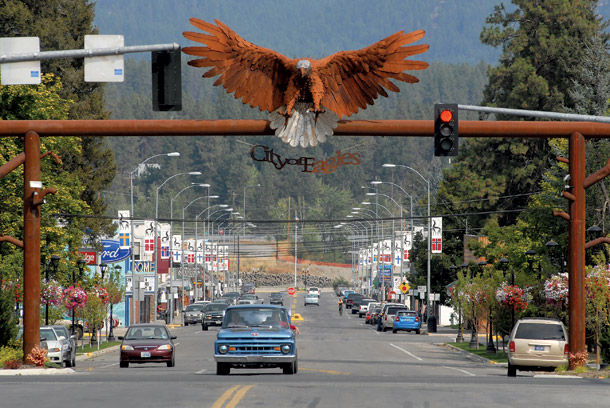Officials in Washington, D.C. and Montana are praising the passage of legislation that extends the Secure Rural Schools funding program for another two years.
The program provides funds to rural communities where the federal government owns most of the land. The funds are used to maintain roads, bridges and schools.
Late last year, Congress failed to reauthorize SRS payments and in January, the U.S. Forest Service announced it would provide $50 million in timber payments to 41 states and Puerto Rico, which would have been considerably lower than what was paid in previous years. Many local officials worried about having to make deep budget cuts in the coming months.
“SRS supports priorities that directly impact our economy: public schools and roads,” said Sen. Jon Tester in a prepared statement. “While we work to get folks in our forested counties back to work in the woods, SRS helps keep county budgets from falling into the red and forcing cuts to services that affect our kids and grandkids.”
On April 14, the U.S. Senate passed legislation that would require the federal government to issue SRS payments beginning in June. The House of Representatives voted on a similar measure last month. Sens. Steve Daines and Tester and Rep. Ryan Zinke all supported the legislation. In 2014, Montana counties received $21 million in SRS funds, part of more than $300 million doled out nationally.
Lincoln County is one of the biggest recipients of SRS funds and will receive about $2.7 million each of the next two years, according to Commissioner Greg Larson. Another commissioner, Mark Peck, said the reauthorization of SRS means the county will be able to avoid, or at least delay, some major budget cuts. A struggling economy has plagued Lincoln County and its coffers took an additional hit last year when it was discovered the county had overtaxed residents by about $2 million.
“This helps us stabilize things because a lot of cuts have already been made,” Peck said. “But we’ve got to find a long-term solution because it’s hard to budget when you don’t know what you’re going to get.”
Montana’s delegation echoed Peck’s concern and said that the federal government needed to open up more Forest Service land to timber production.
“Reauthorizing this important program isn’t enough,” Daines said shortly after voting for SRS funding. “Our rural communities deserve long-term solutions that provide sustainable sources of revenue that are not dependent on the whims of Washington D.C. politics.”
Tester recently introduced legislation that would extend SRS funding for three years, but it has yet to move through Congress. The SRS bill that passed also extended the Child Health Insurance Program, preventing a 21-percent cut in the reimbursement rate paid to doctors who treat Medicare patients. The bill now goes to President Barack Obama, who is expected to sign it into law.
